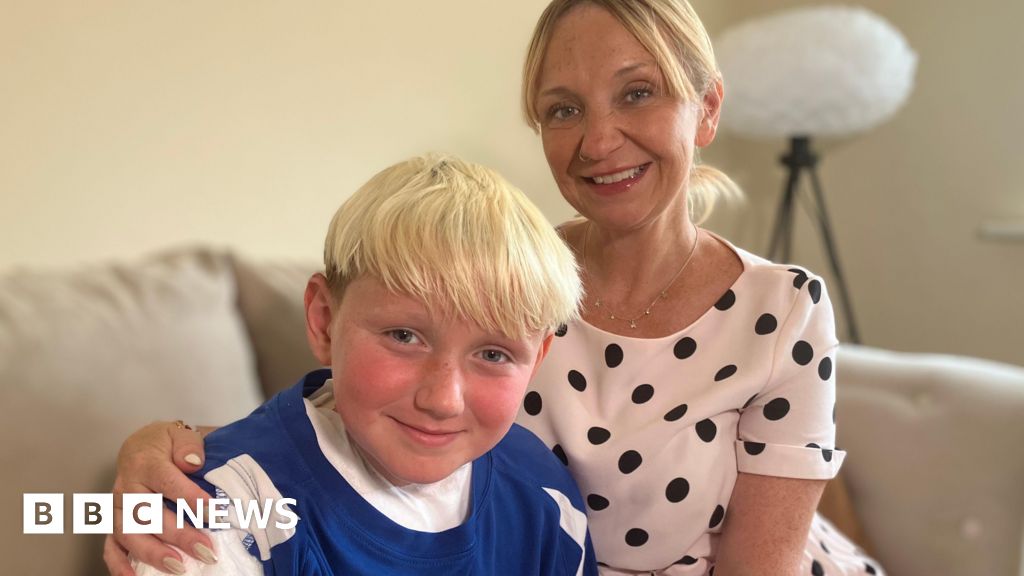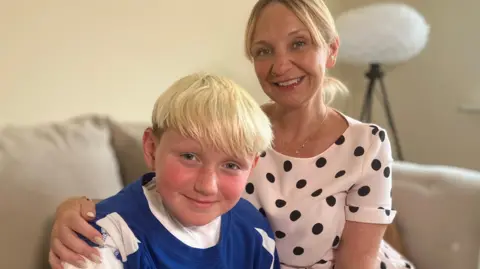 BBC
BBCA family’s dream holiday turned into a nightmare when severe sunburn left a 10-year-old boy requiring hospital treatment.
Hector had been enjoying a sunshine break with his loved ones in Cape Verde, when he decided he wanted to enjoy a final few hours of fun by the hotel pool before they left for the airport.
His mother Natalie said their suncream had run out so they purchased an extra bottle of high factor cream at the resort and applied that.
However shortly after leaving the pool, his back and shoulders turned bright red and huge blisters started to appear.
Natalie has decided to speak about Hector’s experience to warn other families going abroad about only using suncreams they know and trust.
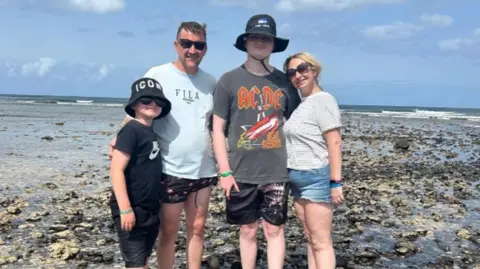 Supplied
SuppliedNatalie told the BBC the family, from Chilwell, Nottinghamshire, had enjoyed a “fantastic” holiday in the African destination before things turned sour.
She said Hector had been “sprayed from top to toe” with the new suncream before heading out for about two hours to splash around with friends made during the holiday.
She thought the suncream was re-applied about four times during his time outside.
It was only once they had left the hotel and arrived at the airport that it became apparent something was wrong.
“He started to feel tired and he became very red,” Natalie said.
Aloe vera cream and ice wrapped in a towel helped to sooth Hector at the airport and during the flight.
However when they arrived home, things took another turn for the worse.
“When he took his t-shirt off, he’d started to blister,” Natalie said.
“Two of them were about 8cm and full of water. It was the most horrific sight you could see.”
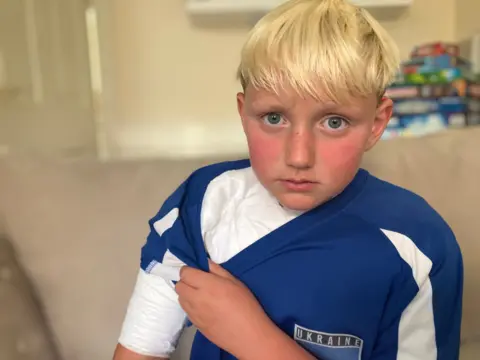
Hector was rushed to hospital where the blisters were popped before his wounds were cleaned under general anaesthetic to prevent infection.
Now heavily bandaged, he is recovering well but the family have been warned they will need to be extra vigilant about his skin over the next two years.
Natalie fears the extra suncream they bought may have been out-of-date, mislabelled or counterfeit, and has warned other holidaymakers to be careful about products they buy abroad.
“I would advise anybody to not buy a suncream you’re not familiar with. Use something you know, use something you trust,” she said.
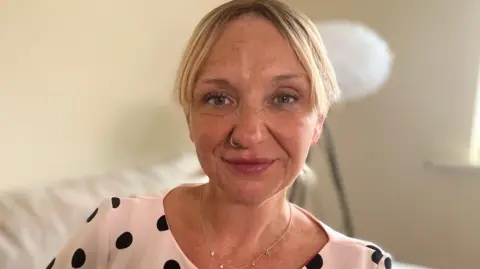
Sunday Nwose, a plastic surgery registrar at Nottingham’s Children’s Hospital, said his team usually saw about two or three cases of this severity per year.
He agreed with the family that holidaymakers should aim to use sun protection products they are familiar with when they are abroad.
In addition, he suggested limiting how much time was spent in the sun between 11:00 and 16:00, when it has the potential to cause more damage.
Follow BBC Nottingham on Facebook, on X, or on Instagram. Send your story ideas to eastmidsnews@bbc.co.uk or via WhatsApp on 0808 100 2210.


